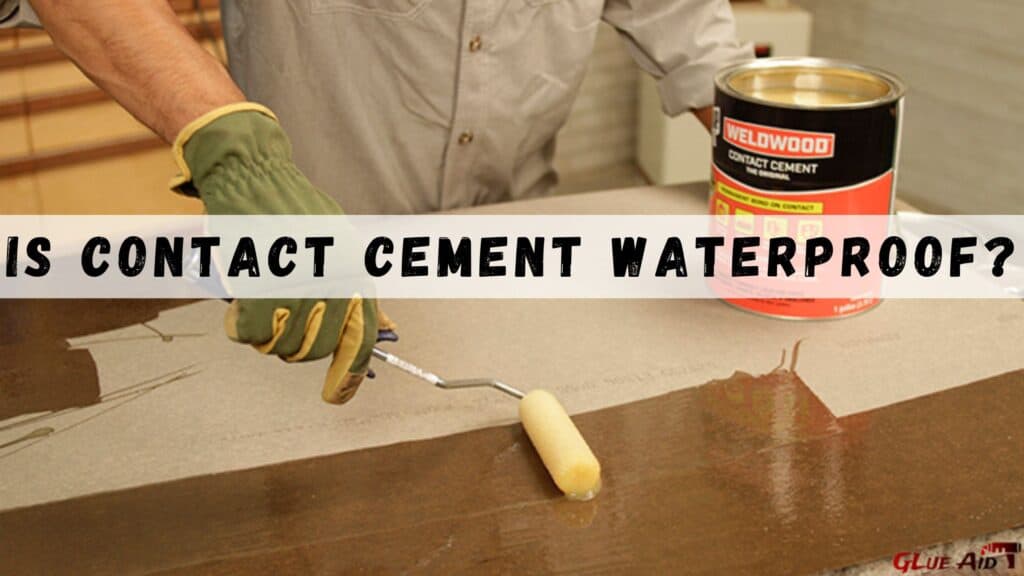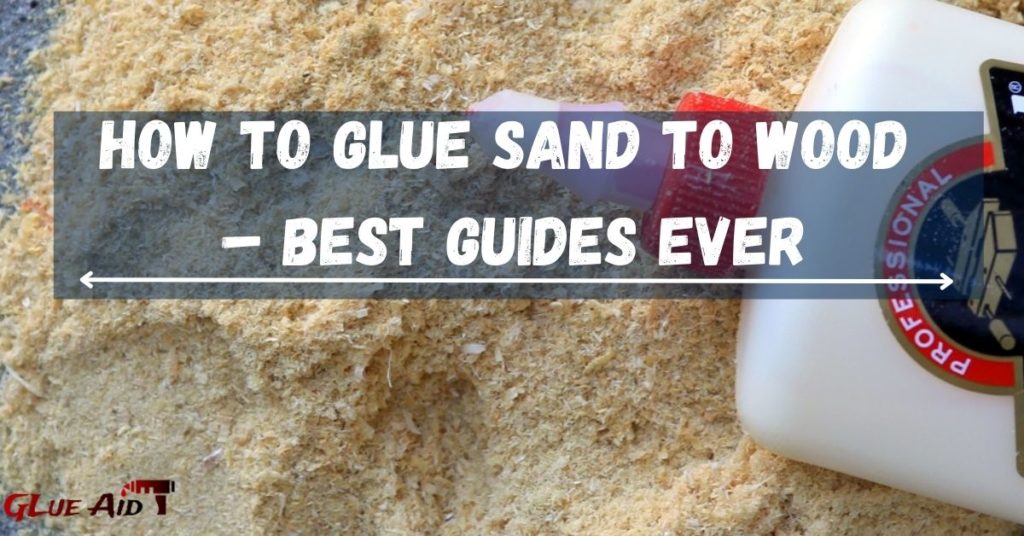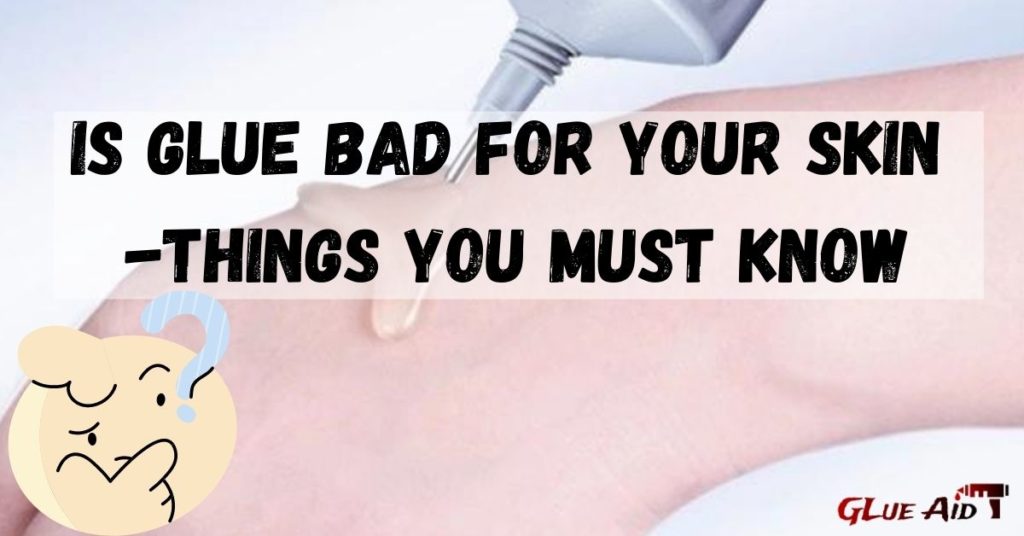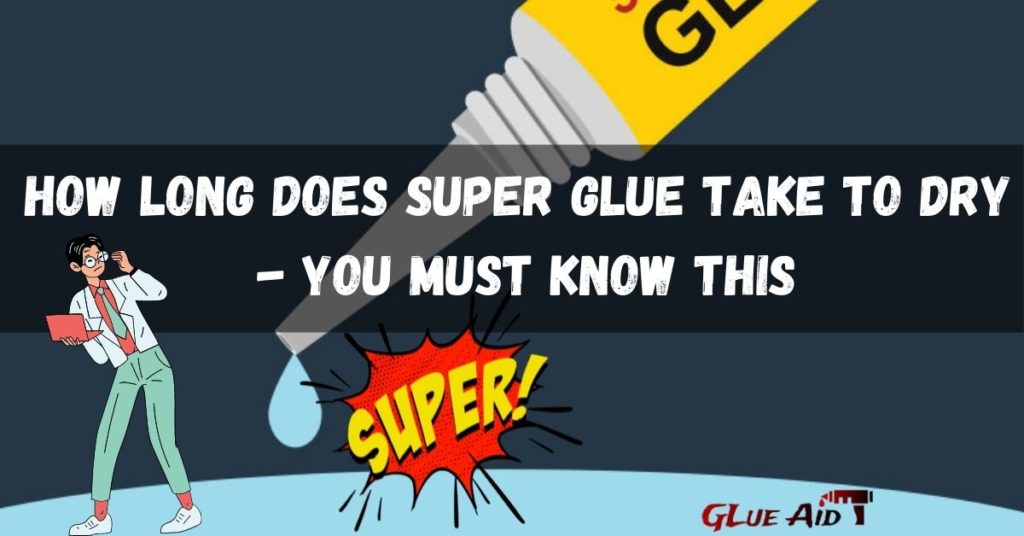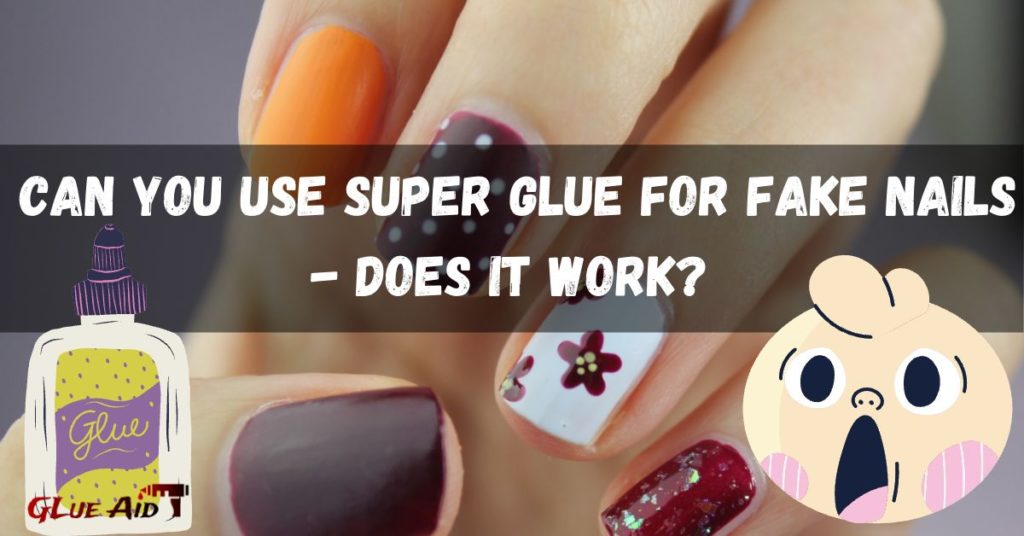Is contact cement waterproof? That’s a question we hear often from our readers. And the answer is…well, it depends. Contact cement is an adhesive used to bond two surfaces together. It can be used on a variety of materials, including metal, plastic, and wood. While contact cement is relatively water resistant, it’s not completely waterproof. So if you’re looking for glue that can withstand heavy exposure to water, contact cement might not be your best option. But if you need something that will hold up in light rain or humidity, it should work just fine.
Table of Contents
What Is Contact Cement And What Are Its Uses

Contact cement is a type of adhesive that is used to bond two surfaces together. It is made from a mixture of resins and solvents, and it can be used on a variety of materials, including metal, plastic, and wood. Contact cement is available in both aerosol cans and tubes, and it can be applied with a brush, roller, or sprayer.
When properly applied, contact cement forms a strong bond that is resistant to heat, cold, and vibration. It is also resistant to most chemicals. However, contact cement is not completely waterproof, so it should not be used in applications where it will be exposed to heavy amounts of water.
How To Use Contact Cement
Applying contact cement is a simple process, but there are a few things you need to keep in mind to ensure a successful bond.
First, both surfaces must be clean and free of dirt, grease, or any other substance that could prevent the adhesive from bonding properly. Next, apply a thin layer of cement to both surfaces and allow it to dry until it is no longer tacky to the touch. Once the cement is dry, align the two surfaces and apply pressure to ensure a strong bond.
It’s important to note that contact cement forms a permanent bond, so you need to be careful when alignment the two surfaces. Once the adhesive has dried, it will be very difficult to separate the two surfaces.
Testing Contact Cement For Water Resistance
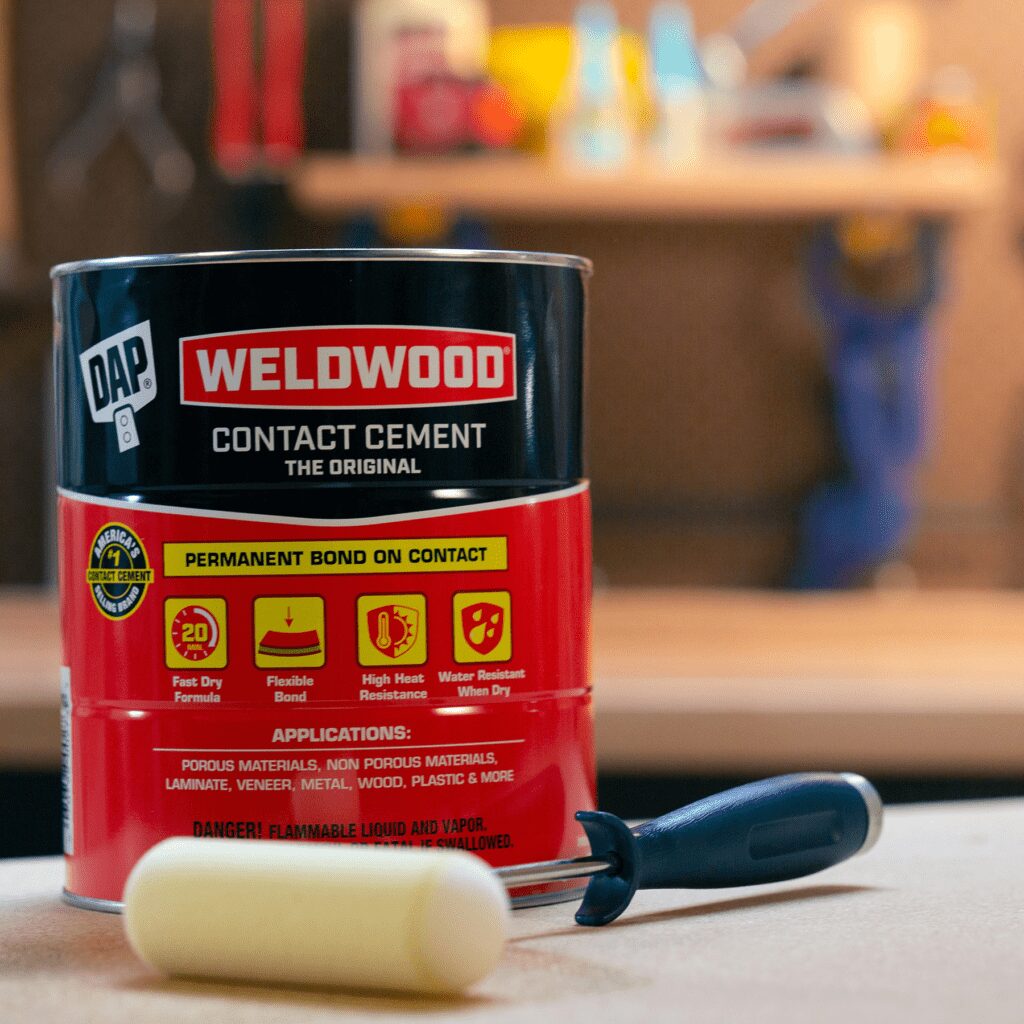
To test the water resistance of contact cement, we recommend applying a small amount of adhesive to a piece of paper and then submerging it in water. If the paper is still attached after 24 hours, then the contact cement is considered to be waterproof. However, if the paper comes detached during this time period, then the contact cement is not waterproof.
While contact cement is not completely waterproof, it is resistant to most chemicals and can withstand exposure to light rain or humidity. If you need an adhesive that can withstand heavy exposure to water, we recommend using a different type of glue.
What Is Some Water Resistant Contact Cement?
If you’re looking for a water-resistant contact cement, we recommend the following options
– Loctite Plastics Bonding System
– 3M Scotch-Weld DP8005
– Gorilla Heavy Duty Contact Cement
These adhesives are specifically designed for bonding plastic materials, and they can withstand heavy exposure to water.
How To Waterproof Contact Cement
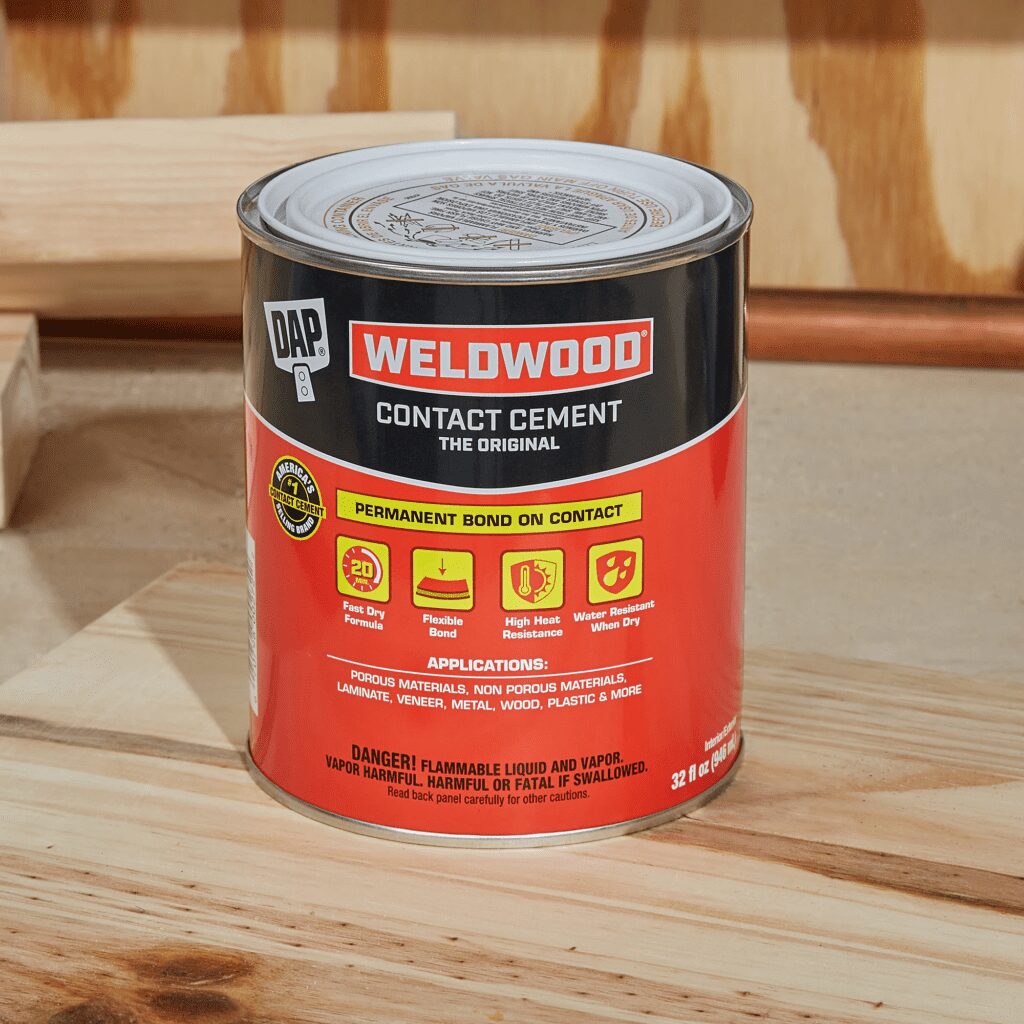
If you need to waterproof contact cement, we recommend using a clear sealant or waterproofing spray. Simply apply a thin layer of the sealant to the dried adhesive, and allow it to dry according to the manufacturer’s instructions. This will create a barrier that will prevent water from damaging the bond between the two surfaces.
Waterproofing contact cement is a simple process, but it’s important to note that the adhesive will still be vulnerable to chemicals. If you need an adhesive that can withstand heavy exposure to water and chemicals, we recommend using a different type of glue.
Contact cement is a versatile and strong adhesive, but it is not waterproof. If you need an adhesive that can withstand exposure to water, we recommend using a different type of glue. However, you can waterproof contact cement by applying a clear sealant or waterproofing spray.
What Are The Benefits Of Using Contact Cement?
There are many benefits to using contact cement, including its versatility, strength, and resistance to heat and chemicals. Contact cement can be used on a variety of materials, and it forms a strong bond that is resistant to vibration and temperature changes. Additionally, because contact cement forms a permanent bond, it is ideal for applications where a strong, lasting bond is required.
Read Also: Contact Cement vs Rubber Cement
The Potential Risks Associated With Contact Cement
While contact cement is a strong and versatile adhesive, there are some potential risks associated with its use. Contact cement can cause skin irritation, and it should not be inhaled. Prolonged exposure to contact cement can also damage the eyes, throat, and lungs. It is important to take precautions when using contact cement, such as wearing gloves and a respirator, to avoid these potential health risks.
FAQ About ”Is Contact Cement Waterproof”
Is Weldwood Contact Cement Waterproof?
Weldwood contact cement is a water-resistant adhesive made of polymer resin and wood flour. It is commonly used for bonding wood together and is especially effective in outdoor applications where exposure to moisture is likely. The adhesive sets quickly and forms a strong bond, making it an ideal choice for projects that require quick, durable results.
Is Lepage Contact Cement Waterproof?
LePage contact cement is a water-based adhesive that dries quickly and forms a permanent bond. It is ideal for bonding a variety of materials, including wood, metal, and plastic. Because it is waterproof, Lepage contact cement is an excellent choice for applications where exposure to moisture is likely, such as outdoor projects or repairs.
Is Contact Cement Glue Waterproof?
Contact cement glue is not waterproof. It is, however, water resistant. This means that it can withstand exposure to light amounts of water, but it will not be effective if it is submerged in water.
Is Contact Cement Water Resistant?
Contact cement is a particularly water-resistant adhesive and is often used in applications where exposure to moisture is likely, such as in flooring or boat construction.
Is Contact Cement Good For Exterior Use?
Contact cement is good for exterior use because it is weather-resistant and durable. It forms a strong bond between surfaces, making it ideal for applications where strength and durability are important. Contact cement is also non-toxic, making it a safe choice for outdoor projects.
How Long Does It Take For Contact Cement To Dry?
The contact cement will usually take about 24 hours to completely dry. However, it is best to wait a few days before using the surface to make sure that it is fully cured. During this time, you should avoid getting the surface wet.
Is Gorilla Contact Adhesive Waterproof?
Gorilla contact adhesive is a water-based adhesive that is designed for bonding surfaces together. It is not waterproof, and will not hold up in wet environments. It is not recommended for use on exterior projects or applications that will be exposed to water.
Tips For Using Contact Cement Safely And Effectively
-Wear gloves to protect your hands from skin irritation.
-Use a respirator to avoid inhaling the fumes.
-Work in a well-ventilated area.
-Avoid contact with your eyes, throat, and lungs.
-Apply a thin layer of adhesive to one surface.
-Allow the adhesive to dry until it is tacky.
-Press the two surfaces together and hold for several seconds.
-Do not move the bonded surfaces for at least 24 hours.
Conclusion
Contact cement is a versatile adhesive that can be used on a variety of materials. It forms a strong bond that is resistant to heat, cold, and vibration. However, contact cement is not completely waterproof and it should not be used in applications where it will be exposed to heavy amounts of water.
Related Article:
